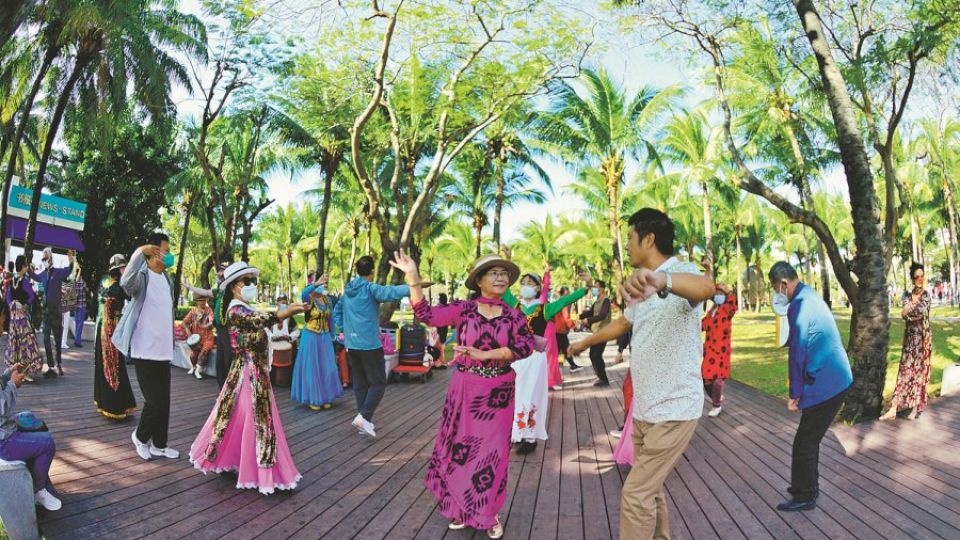November 29, 2023
BEIJING – Sightseeing seniors helping tourism industry rebound after pandemic pain
Taking a picture on Tian’anmen Square, 75-year-old Shao Qing, from a village in the eastern province of Zhejiang, said it would prove to her friends that she had fulfilled her dream of visiting Beijing — China’s capital and one of its most popular travel destinations.
Shao was accompanied by her 50-something daughter during their seven-day stay in Beijing in late October. They traveled to the Summer Palace, the Palace Museum, the Temple of Heaven, and many other landmarks of Chinese culture and history.
“It’s the slack season for us farmers and my daughter and son-in-law said the hotel prices and flight tickets to Beijing were real bargains,” she said. “It was the first time in my life that I’d ever taken a flight!”
Shao is one of 280 million Chinese aged over 60 — accounting for almost 20 percent of the country’s population — according to the latest figures from the Ministry of Civil Affairs. Tourism experts and industry insiders say the elderly have a lot of consumption potential because of their abundant spare time and steady disposable income from pensions.
Travel portal Trip.com Group said that in the year to mid-October, the number of travelers aged over 55 making bookings on its platform was double that in the same period last year, when strict COVID-19 pandemic precautions were in place. Nearly 60 percent of the elderly travelers booking on Trip.com were aged 55 to 60.
There are, however, big differences in consumption habits among the elderly. The group said those from first- or second-tier cities or places with better economic development usually had more travel experience and were more willing to pay for higher-priced leisure products. Elderly travelers from villages or counties, meanwhile, focused more on economical trips and taking snaps at scenic spots.
Qi Chunguang, vice-president of Tuniu, another travel portal, said the platform had seen the number of travelers aged over 60 grow since the National Day Holiday in early October — in what is usually the offseason for tourism.
“The elderly show a higher preference for slow-paced and leisure-related tours such as viewing natural landscapes, enjoying hot springs or taking cruise tours,” he said. “Climate and weather are also important elements affecting their choices, as they favor destinations with mild or warmer climates such as the southern provinces of Hainan and Guangdong.”
Qi said the elderly like to avoid peak seasons and show more interest in tours offering tailored services such as photography.
He said around 90 percent of the elderly travelers using his platform chose group tours that featured more flexibility in travel times and destinations — both domestic and outbound.
However, a limited choice of tourism products and a lack of tourism services tailored specifically for the elderly — such as barrier-free facilities — were still problems when it came to boosting their consumption.
“The elderly have limited choices of high-quality tourism products, but the elderly tourism market does enjoy a promising future,” Qi said.
“The elderly are concerned about the price, comfort and safety of their trips. We suggest travel agencies arrange slower-paced itineraries and add lunch breaks for the elderly. Experienced tour guides, and transportation and hotels with barrier-free access will also be helpful.”
Qunar, another online travel services provider, said the elderly should take group tours rather than independent trips, so they can seek help from their peers when feeling unwell. It also said they should be on the alert for telecom fraud during trips because they were easy targets for fraudsters due to their comparative lack of knowledge about online offerings.
Qi said: “We suggest the elderly book products at qualified travel agencies to make sure they get transparent prices and services. The elderly are not suitable for overlong trips or intensive travel demanding higher physical strength.”
He said they should also avoid unreasonably low-priced tours to avoid being forced into making purchases during their trips.


